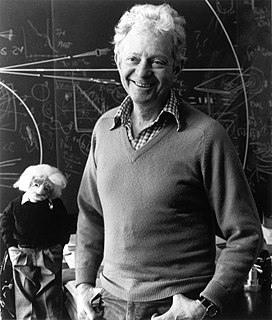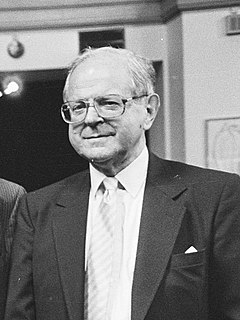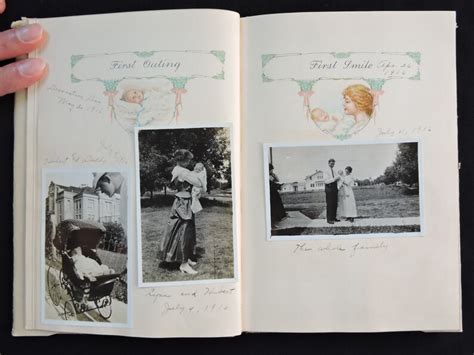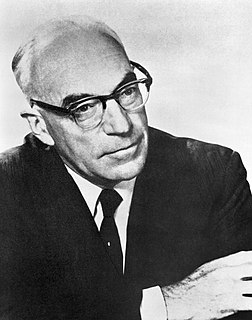Top 29 Reductionism Quotes & Sayings
Explore popular Reductionism quotes.
Last updated on April 14, 2025.
We live at a time that is notable for the polemical nature of discussions about identity, consciousness, rationality, agency, memory, and feeling. 'New atheists' and reductive materialists conduct gladiatorial debates against defenders of faith and enemies of reductionism. Lots of heat is produced, but, alas, little light is shed. How marvelous it is, then, to see this fine new book by Lenn E. Goodman and Gregory Caramenico. Here is a learned, illuminating, and decidedly non-polemical treatment of the classic questions of soul, mind, and brain-an exemplary work of scholarship.
The Truth doesn't need your cooperation to exist. All forms of cult, all forms of hype, all forms of delusion do require your participation in order to exist. I've looked into marginal areas of human experience -historical and otherwise- with a rational mind, and what I've found is that doorways into the miraculous are far fewer than the publicists of the New Age would have us believe. On the other hand, they are not as rare as the proponents of radical reductionism and materialism would have us believe. There are doorways out of the mundane.
We still find, especially in parts of academe, the damaging notion that everything is a struggle for power, or being empowered, or hegemony, or oppression: and that all competition is a zero-sum game. This is not more than repetition of Lenin's destructive doctrine. Intellectually, it is reductionism; politically, it is fanaticism.
And yet my, not only my faith, but my experience has led me to believe that the world is not a construction of space and time and matter and energy. That that mapping is insufficient. That the world is instead some kind of a linguistic construct. It is more in the nature of a sentence, or a novel, or a work of art than it is in the nature of these machine models of interlocking law that we inherit out of a thousand years of rational reductionism.
A delicate balance is required to combat violence perpetrated in the name of a religion, an ideology or an economic system, while also safeguarding religious freedom, intellectual freedom and individual freedoms. But there is another temptation which we must especially guard against: the simplistic reductionism which sees only good or evil; or, if you will, the righteous and sinners.
There is another temptation which we must especially guard against: the simplistic reductionism which sees only good or evil; or, if you will, the righteous and sinners. The contemporary world, with its open wounds which affect so many of our brothers and sisters, demands that we confront every form of polarization which would divide it into these two camps.
Clary: What are you doing here, anyway? Jace: 'Here' as in your bedroom or 'here' as in the great spiritual question of our purpose here on this planet? If you're asking whether it's all just a cosmic coincidence or there's a greater metaethical purpose to life, well, that's a puzzler for the ages. I mean, simple ontological reductionism is clearly a fallacious argument, but- Clary: I'm going to bed.
There is a strong current in contemporary culture advocating ' holistic ' views as some sort of cure-all... Reductionism implies attention to a lower level while holistic implies attention to higher level. These are intertwined in any satisfactory description: and each entails some loss relative to our cognitive preferences, as well as some gain... there is no whole system without an interconnection of its parts and there is no whole system without an environment.
One good reason for the popularity of "reductionism" among the philosophical outposts of the Western Establishment is that it can be, and is, used as a device for trying to take the wind, so to speak, out of the sails of Marxism. . . . In essence reductionism is a kind of anti-Marxist caricature of Marxist determinism. It is what anti-Marxists pretend that Marxist determinism is.
Protestant Christianity, whether in its liberal or conservative garb, finds itself waking up each morning in bed with a deteriorating modern culture, between sheets with a raunchy sexual reductionism, despairing scientism, morally normless cultural relativism, and self-assertive individualism. We remain resident aliens, OF the world but not profoundly in it, dining at the banquet table of waning modernity without a whisper of table grace. We all wear biblical name tags (Joseph, David, and Sarah), but have forgotten what our Christian names mean.
Someone with a fresh mind, one not conditioned by upbringing and environment, would doubtless look at science and the powerful reductionism that it inspires as overwhelmingly the better mode of understanding the world, and would doubtless scorn religion as sentimental wishful thinking. Would not that same uncluttered mind also see the attempts to reconcile science and religion by disparaging the reduction of the complex to the simple as attempts guided by muddle-headed sentiment and intellectually dishonest emotion?
I maintain that the human mystery is incredibly demeaned by scientific reductionism, with its claim in promissory materialism to account eventually for all of the spiritual world in terms of patterns of neuronal activity. This belief must be classed as a superstition. ... We have to recognize that we are spiritual beings with souls existing in a spiritual world as well as material beings with bodies and brains existing in a material world.
























